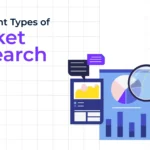Why Is the Expert Network Industry Growing So Fast?
The expert network industry has rapidly evolved in recent years, from being a niche service to being service that has found broad use with multinational corporations, investment funds, and even startups. Yet, the general public continues to ask: What are expert networks? And how are they growing, seemingly, so rapidly? Let’s make sense of the confusion and analyze their growth.
What Is an Expert Network?
An expert network is a service that connects a business or investor with experts who have deep expertise, often referred to as “subject matter experts.” These experts are usually professionals with significant and practical experience in domains such as health care, technology, energy, retail, or law.
For instance, if a private equity firm were assessing a potential acquisition of a Southeast Asian pharmacy chain, rather than simply pulling together an aggregated summary of generic market reports, the firm could leverage an expert network to reach out directly to local pharmacy executives, healthcare regulators, or supply chain executives. Within hours or days, the firm could obtain actual, insider information that would have taken them months, if not years, to build internally.
Overall, expert networks connect those seeking to access expertise and those available to provide their specialty.
The Rising Demand for Specialized Knowledge
Businesses now face challenges that cannot always be solved with broad, generic, or surface-level insights. Regulations become tighter, industries become more technical, and competition is fiercer today.
This need has fueled industry growth. The global expert network market, valued at around $2.1 billion in 2022, is projected to reach $4.2–4.9 billion by 2025 and an estimated $14–18 billion by 2034, with a compound annual growth rate (CAGR) of about 15–18%. The number of experts available through these platforms has crossed 1 million worldwide, serving over 4,500 client firms.
For instance, a healthcare company that is trying to bring a new medical device to market needs subject-matter expertise around science and engineering, and also expertise around the FDA approval process, hospital purchasing process, insurance reimbursement, and more. No single consultant is going to cover all of these issues, but a company can engage experts on each of these issues through an expert network.
This type of access to niche knowledge is one of the primary reasons this industry is growing so quickly.
The Pressure to Make Faster Decisions
Organizations traditionally would take months, if not longer, to initiate a research project and then launch into strategic action. In a world where actionable opportunities have an extremely short time frame, waiting months to act is undoubtedly problematic. Expert networks exist to help accelerate the pace of exploration. Rather than representing a consultant to take part in a six-month plan of research, a decision maker can schedule a one-hour call with a seasoned leader in their field and find out what they need to know as if it were shared in real-time. Making better and faster decisions puts organizations at risk for decisive and massive gains of action in highly mobile industries such as technology, energy, and finance.
It’s no surprise then that consulting firms account for 40–50% of expert network usage, while private equity and hedge funds represent another 35–40%, reflecting the urgent decision-making needs of these sectors.
Global Expansion and Market Entry
As businesses endeavor to expand their operations into new countries, they face challenges in each new market, including different cultures, laws, local regulations, and consumer buying behaviours that may differ significantly from those in their home country.
For instance, think about a U.S.-based retailer that wants to develop its business in the Middle East. They might not have insight into regional shopping behaviors, governmental regulations, or the network of the supply chain in general. By working with regional experts through an expert network, the retailer will be able to foresee potentially costly errors and better adapt their retail format to local frames of reference. The idea of expert networks having a global reach, beyond what may be available to you in your home market, is one of the most valuable elements of expert networks and now makes them critically important for organizations that are contemplating entering new markets.
This global reach is reflected in market data: North America currently accounts for about 42% of the expert network market, Europe for ~30–33%, and Asia-Pacific for ~20–25%, with Asia showing the highest projected growth rate.
Flexible, On-Demand Access to Knowledge
Hiring a dedicated full-time expert or a consulting company can be extremely costly, and not every organization needs ongoing access to an expert. Expert networks provide access when it is needed. Instead of having and paying for a long-term contract, you pay only for the time the expert is engaged with you. This model is attractive to small start-ups that may have limited budgets, and larger corporations that may only need access to outside experts once in a while.
Some calls may cost as little as a few hundred dollars, while highly specialized experts can demand fees of up to $1,200 per hour. Compared with the expense of hiring in-house staff, this on-demand model makes sense for both startups and global corporations.
This trend mirrors the broader ‘gig economy’; just as businesses hire freelancers for design or marketing, they now turn to expert networks for specialized expertise.
Technology Making It Easier
A decade ago, finding and vetting the right expert might have been slow and manual. Today, technology has completely transformed the process.
Modern expert network platforms use sophisticated databases, artificial intelligence, and compliance systems to:
- Quickly match clients with the most relevant experts.
- Ensure confidentiality and ethical standards are maintained.
- Simplify scheduling and payment processes.
This tech-driven efficiency allows expert networks to serve thousands of clients worldwide without the delays or barriers that used to exist.
Why Investors Love Expert Networks
The investment community has played an outsized role in driving growth in the expert network sector. Private equity firms, hedge funds, and venture capital firms all seek insights that are not captured in public reports and data.
For example, before investing in a tech startup, a venture capital firm may utilize an expert network to speak with former employees of a competitive firm, industry analysts, and potential customers. These discussions may help expose unknown risks or opportunities that are not captured in the financial statements. In the investment world, more informed analysis generally translates to better returns. This is why expert networks are a standard mechanism for serious investors.
It’s not surprising that over 70% of the top global consulting and investment firms use expert networks regularly.
Where Nexus Expert Research Fits In
One of the organizations driving this evolution is Nexus Expert Research, an organization that clearly illustrates the evolution of the expert network model. Nexus uses a worldwide pool of subject-matter experts, along with unique matching technology, to provide faster insights, with to-the-point accuracy. Nexus’s compliance and transparency have made it a dependable partner for investment firms, corporations, and consultancies.
For example, Nexus Expert Research delivers access to professionals in sectors such as healthcare, energy, consumer goods, and technology, facilitating client learning in real-world experiences in hours, rather than weeks. Nexus is helping to establish a standard for how expert networks are delivering value in today’s fast-moving, information-starved economy, using a combination of rigorous vetting, a robust ethical framework, and scalability of technology.
Conclusion: Why Growth Shows No Signs of Slowing
The expert network sector is seeing a surge in growth because it is uniquely positioned to resolve challenges faced by modern businesses every day: The need for highly specialized knowledge, the need to make quicker decisions, the need for support in expanding globally, and the need for flexible access to insights. Technology has helped improve the efficiency of the expert network model, and establishing strong compliance standards has helped build trust.
For businesses and investors, expert networks are no longer a luxury; they have become a necessity. As industries continue to grow in complexity and interdependence, the appetite for real-world expertise will only increase. Expert networks are well-positioned to capitalize on this growing demand.




